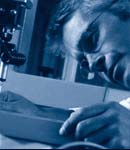|
|
![]() |
![]() |
![]() |
![]() |
![]() |
| Tokyo Half Project |
| |
![]() |
Projects
Tokyo Half
Project: Evaluating CO2 Emission Reduction Using Sustainable
Collaboration Platform
A Sustainability Collaboration
Platform to Evaluate Energy, Mobility and Building Technologies for
a Sustainable Urban System
Principal
Investigators
MIT: D.Wallace
UT: K.Hanaki, H.Komiyama,
S.Kraines, T.Matsuo, H.Takahashi, K.Yamada, K.Yamaji,
Y.Yanagisawa
ETH: D.Favrat, J.Gay, P.Haldi, A.McEvoy,
A.Rufer
Goals/Objectives
The objective of the Tokyo
Half Project (THP) is to discover integrated systems of ecologically
effective and economically rational technologies with the final
target of achieving a 50% reduction in the CO2 emissions from the
city Tokyo. To achieve this, the project includes three goals as
follows:
- To identify the analytical tools needed to assess building,
energy, transportation, and infrastructure, as well as policy
alternatives; and
- To develop a dynamic, holistic simulation modeling system
based on model integration over the Internet that allows
specialized models of technological and policy alternatives to
exchange information in order to comprehensively evaluated their
overall impact on the overall system; and
- To evaluate how new and existing technologies might be
integrated to reduce greenhouse gas emissions without compromising
overall services.
The project has grown out of research
at the Global Engineering Laboratory at the University of Tokyo. The
project was subsequently expanded to utilize the Distributed
Object-based Modeling Environment (DOME), which was initiated by the
Computer Aided Design Laboratory at MIT within a previous AGS
project (“Holistic Design”).
The expanded research aims to
create a prototype of an urban "sustainability collaboration
platform," based on distributed peer-to-peer model integration to
build networks of integrated system models, with the DOME software
infrastructure as the main enabling information technology. This
collaboration platform is envisioned as providing an Internet-based
knowledge exchange and integration forum that can be used to develop
integrated subsystems of technologies and to comprehensively
simulate the effects of those integrated subsystems on the entire
industrial ecology system of an urban
region.
Results/Findings
The project has supported
the development of research tools for holistic and collaborative use
of knowledge for solving large-scale design problems related to
increasing urban sustainability. Methodologies have been developed
to integrate simulation models on different aspects of sustainable
urban development. The research has also supported the development
of a highly robust multi-objective optimization tool based on a new
evolutionary algorithm. Individual research groups have developed a
large number of simulation models that are needed to carry out case
studies, such as models for waste disposal and recycling processes,
life cycle design and evaluation of buildings, power grid planning
and dispatch, specialized technologies such as solid oxide fuel
cells, and energy systems such as hybrid solar cogeneration systems
for communities in semi-arid regions.
Based on pilot
applications and tests, a completely new third generation
implementation of the DOME concept (DOME3) has been completed to
ensure the system suitability for widespread and open deployment.
DOME3 provides a common Internet-based computational infrastructure
that makes the exchange and coordination of related parameters
between different simulations a transparent process.
There
are three key aspects of the DOME concept and DOME3 implementation:
- A new philosophy of how to build integrated networks
- An architectural representation that supports the integration
philosophy
- A software implementation to allow the use of the integration
philosophy
The project is based on collaborative
research. The UT research on developing integrated technology
solutions for GHG emission reduction has benefited from the
simulation model development and analysis in ETH/EPFL, and the
development of the model integration approach and tools at MIT. The
project has also made efforts to collaborate with other AGS
projects, including the Value of Knowledge project, the
Breakthroughs in Technologies project, and the
Technology-Energy-Environment-Health (TEEH) Chain
project.
More Information
MIT Cadlab
THP (Japanese) |
|



